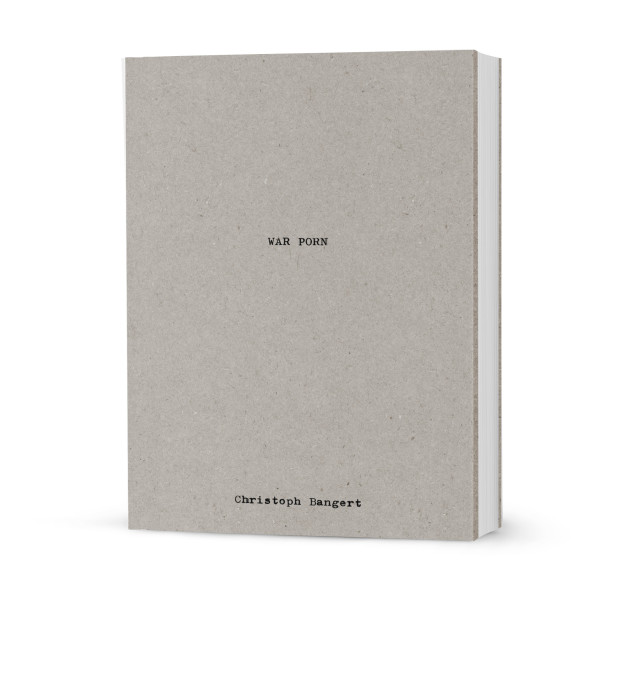War Porn

“Do I exploit my subjects? Is it morally justifiable to work as a photographer in war zones and disaster areas? Why are we all so attracted to images of other people’s misery? Am I producing ‘War Porn’?”
As a photographer covering conflict and natural disasters for international publications, Christoph Bangert is regularly confronted with a dilemma: On the one hand, he tries to document events as truthful to his own experience as possible, but on the other hand he needs to accommodate several layers of self-censorship. The first layer is located inside of his own brain, and Bangert has no recollection at all of taking some of the pictures seen in the book. The second layer of self-censorship is executed by the publications he works for, while the the third layer is the viewer’s.
Using his images taken during the past ten years in Afghanistan, Iraq, Indonesia, Lebanon, and Gaza, Bangert started an experiment: What would happen if we suppressed our need for self-censorship for once? The result is a raw, intense, mysterious, brutal and, at times, shocking and controversial book. It is as highly personal as it is honest in its quest for an alternative view of our world.

The book
The small format, open-spine binding, rough cover material and typewriter font are reminiscent of a handmade, personal journal. Some of the pages are not cut apart, but have a perforation which can easily be ripped open. This way the reader can decide just how much they wants to see, and how much they can take.

About Christoph Bangert
Born in 1978, Christoph Bangert studied photography at the Fachhochschule Dortmund, Germany and at the International Center of Photography, New York.
He has worked in Palestine, Japan, Darfur, Afghanistan, Indonesia, Pakistan, the US, Lebanon, Nigeria, Zimbabwe and Iraq, where he was on assignment for The New York Times. His work from Iraq is collected in the book, IRAQ: The Space Between. His pictures have been published in leading international publications and he regularly photographs on assignment for The New York Times, Stern Magazine and Neue Zürcher Zeitung.
Bangert won several awards, including World Press Photo, POYi, and participated in the Joop Swart Masterclass. After completing a 14-month overland journey with his Land Rover across Africa he published a book, Africa Overland in 2013.
He is currently working on a long term project about the Fukushima nuclear disaster.
Details
Christoph Bangert
WAR PORN
Text by Christoph Bangert
Designed by Teun van der Heijden,
Chiho Bangert, Klaus Kehrer
Hardback, open spine
12 x 16 cm
192 pages
98 colour ills.
Publisher: Kehrer Verlag Heidelberg Berlin


